By Marian Lowe
Growing up, my mother was the predominant role model I had on what it was to be a mother and as a result my mother’s life became the familiarity of all that I came to learn and know about being a mother. I also had two grandmothers, with vastly different personalities. I had seven aunts – five on my mother’s-side, two on my father’s side – another array of personalities. My mother had friends with various backgrounds and attributes most of whom were from her days of working as a nurse, also there were friends and acquaintances from our local community but none were intimately involved in our upbringing so as to have any significant impact. I was one of eight children living on a farm in rural Australia, which contributed to a somewhat isolated upbringing where we were not really exposed to many other realities or ways of life. It is only recently that I am able to see that I was raised under a model of life that had a very particular flavour of ideals, beliefs, values, morals and social norms; all of this came to shape what I thought the world was, who I thought I was in it and how I thought I needed to behave or not behave; all of which became the sum total of what I thought I should be or not be.
My life had been modelled on a precedent, a seemingly very real and normal precedent that was based on a ledger of feedback registered through the behaviours and ideals of others. My mother factored considerably in this as she was there from the very beginning and the primary caregiver in my early years.
There is nothing right or wrong with the model of life I was raised under though there were many years I was caught up in the kind of measuring that can lead to regret or the hopes of a better option. I have come to realise that the importance is in seeing and fully accepting that it is and was a model of life that can be identified with—or not. The ‘or not’ factor an offering and a reminder that: “it never was me, nor does it have to be”. And the more I step away from thinking ‘it’s me’ the more space I am able to see the outplay of behaviours and ideals, without necessarily or unnecessarily being owned by them.
Back to ‘my’ mother as a role model. How did that define what it is to be a mother for me?
The model
Based on the ideals of my upbringing that were educated through daily life:
- a mother is subservient.
- a mother sacrifices herself physically.
- a mother is a woman that everyone says has the highest value in society even though they are often ignored or tended to last (except in a situation of a sinking boat).
- a mother has greater integrity and more currency if:
- She has her own biological children with a husband (the one and only man she has ever slept with).
- She is able to become pregnant easily, carry smooth pregnancies, experience labour without complaint and give birth naturally.
- She breastfeeds her children and has plenty of milk to do so.
- She raises her children without asking for support, and able to do it all on her own.
- She has lots of biological children (with the same man, if not with the same man she is not a great mother, see point #1).
- She is good, nice and sweet to everyone, even when faced with abuse.
- She tolerates abuse and an abusive partner.
- She raises children that are polite and exhibit good behaviour.
- She carries the burden of raising and nurturing the children while her husband works hard to provide for the family.
- She defers all decisions on important matters to her husband, even if the health and well-being of herself and her children is compromised or at risk. The husbands needs, beliefs and opinions are supremely valued above all else.
The above is a shortlist could be fleshed out in greater detail. And it was fleshed out in most of the women who I came to know as mothers growing up in many flavours, though I only related to the ones that fit closer to the model I was raised with. There were women that were not classified as mothers as well, they were always spoken about in sympathy: “oh poor so and so, she was not able to have children. It’s too bad she has no children of her own.”
By the time I was a teenager I had already subconsciously rejected the model promoted through the life of my mother. As my friends at school began to go through puberty I distinctly remember not wanting to grow up, I didn’t want to grow up from a girl to a woman because quite frankly it looked like misery. I did not want my mother’s life for anything.
However, I was well imbued with my value being associated with having children so a strong desire and need to have children ‘one day’ remained — just not like ‘that’ (the way it was for my mother).
Life through my 20s and 30s was heavily impacted through the persistence of the ideals I had grown up with blended with societal ideals I picked up and added to the mix after leaving home. I became pregnant at age 23 in a new relationship with a man not interested in genuine commitment let alone raising children. His response was: “I already have a child to take care of,” referring to his mother, whom he still lived with. For twelve weeks I was in denial that I could be pregnant, when it was confirmed through a blood test and traumatic ultrasound arranged by my doctor (who looking back was anti-abortion) I knew I had no choice but to terminate the pregnancy because how could I possibly raise a child if I didn’t have a husband and I didn’t yet have a career and if my only choice would be to return to the tumultuous, abusive, chaotic household I was raised in? I was also mindful of the collective shame that myself, the child and my family would have to wade through because I had become one of ‘those’ mothers – the poor mothers that didn’t fit the ideal model. Having an abortion was a wound that required healing on many levels, however, no emotional scars or longing wounds remain to this day because it was, without a doubt, the truest option at that time for my well-being and the well-being of all in that situation. As I saw it there really was no other option.
When I finally ‘landed’ in a relationship with a man I adored and who adored me, I was adamant that we would have children together one day. We had a son from his previous marriage who was age five when we met. Loving him as my own son was completely normal for me but there was an arrogance that if we had one or two more children I could show my partner how amazing it could be because I knew I could be a mother the ‘right’ way. My credentials were the fact that I was one of eight children and I had grown up with babies, lending a hand in raising my younger siblings and watching how my mother acquiesced to my fathers every demand. My partner was resistant to the idea of more children, he wanted simplicity and didn’t trust that round two of child rearing would be any different to the rejection and hurt he experienced in round one.
Through my thirties my friends and family all started to have children and as I shared this with them, I continued to study and look for a way of being a mother that I was inspired by, but everywhere I looked there was not one role model that I could say “this is it!” and that is with all due respect to all the wonderful women in my life. From what I saw most of the time being a mother looked like struggle and thankless sacrifice with a good dose of suffering (though at the time I revered this).
As the calendar flipped its pages, I watched as the women I knew lost themselves in fulfilling whatever was their ‘ideal’ of what it was to be a mother. This quietly scared me, I already felt somewhat lost, what if being a mother made me more lost?
I remember saying to my cousin, that I had yet to find a mother that inspired me and she was offended that I would say that as she was one of the ‘mothers’ in my life, though today she agrees that back then despite all best intentions the way of being a mum that seemed the only way she knew had debilitating consequences upon her health and well-being.
Because I had a partner whom I adored and who was resistant to the idea of having children I found myself studying and questioning everything. I had to peel back all the layers. And at the time I hated that I had to do this—I was torn. I just wanted to have our kids and check those boxes that I had learned about in ‘the model’. Why couldn’t we fit in? Why couldn’t my partner just go along with it? Why did he have to be so difficult? Besides this is my right! Isn’t it? Well that’s what many of my female friends told me at the time. It was my right as a woman to have children—my birth-right and it was my partner’s job to provide.
An internal plea persisted, please, please, please don’t let me be another child-less worth-less woman or second-rate step-mother, I would be condemned.
Condemned?
But condemned by what?
A model.
A patchwork model of all I had experienced as right, wrong, good and bad.
The model had me all twisted and confused with devastating consequences on the love that was the relationship I shared with my partner. Extracting myself from everything I was raised by and had hinged my life on was absolutely necessary for me to be able to sit here and write without attachment that:
I am a woman – no matter what.
And that means no matter what model.
Though I can say that the process I went through for much of my life, particularly the 9-year period from ages 35-44 was unnecessarily difficult and only so because what I thought was me was actually a model. It wasn’t real, it was a bunch of made up, multi-generational perpetuated stuff that was familiar and comfortable and secure but disruptive and disturbing to a simplicity and joy that can be shared through living with a natural ease and flow of life. Models of life are not us, they are models. And any model can be made redundant in an instant.
The truth of being a woman and of being a mother is within the heart of each and every one of us and this is a constant no matter what occurs in life.
✺
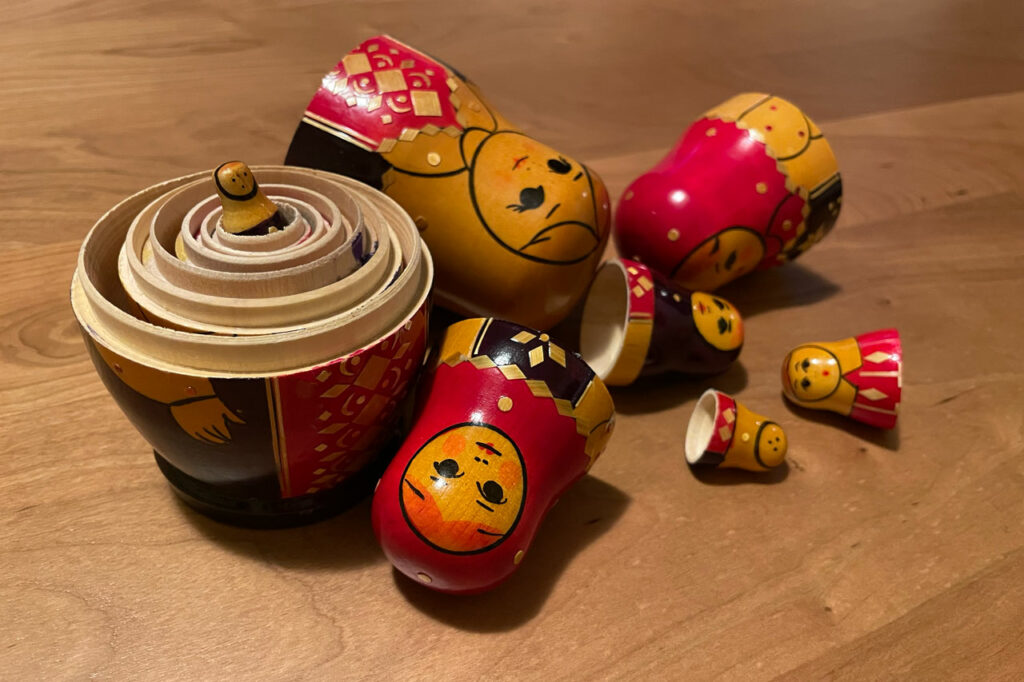
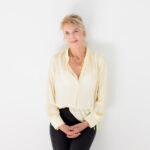
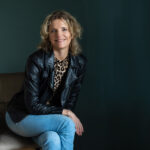

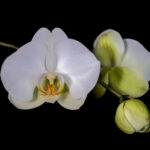
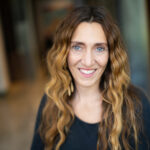


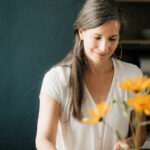
This article is a great read. So much angst is experienced by women, and in our society, over meeting or measuring up to a plethora of ideals… Aaarrrghhh! Who can meet them all, and to what avail?
You offer us to let this all come to rest for (at least) a moment Marian, that we may get in touch with what is true. Thank-you deeply.